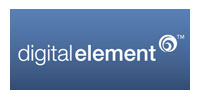 In a release yesterday, Digital Element announced that it would begin offering postcode-level (“zip code” in the U.S.) targeting capabilities. (See the release.)
In a release yesterday, Digital Element announced that it would begin offering postcode-level (“zip code” in the U.S.) targeting capabilities. (See the release.)
Digital Element’s Vice President Frank Bobo discussed the implication of European expansion and the market for IP targeting.
AdExchanger.com: Can you help us with the jargon? What does the phrase “postcode-level database” mean? And then, how is this different than other solutions?
FB: Postcode-level targeting is akin to zip code-level targeting in the United States. (In the United Kingdom, there are no zip codes, only post/postal codes). There have always been inherent limitations in tying zip/postcode-level information to IP addresses due to the way the Internet is architected, as well as the way IP Intelligence/geolocation information is derived. Digital Element creates a “map” of Internet topology: the way the Internet is routed, where end-point networking equipment is located, etc. As such, we can tie an IP address to an endpoint piece of network equipment, for example a DSLAM (a Digital Subscriber Line Access Multiplexer that allows telephone lines to make faster connections to the Internet. And, with great confidence we can now identify the country, state, and city where that IP address resides. However, that one piece of networking equipment may serve a 25- to 30-mile radius, which might include several zip/postcodes, making it hard to tie a 5-digit zip code to that specific IP address.
What is new and differentiating with NetAcuity Edge is that no other provider has been able to circumvent these limitations in either the United States or abroad. Because of Digital Element’s patented routing infrastructure analysis and the insight we glean from a network of global commercial partners, we are, for the first time, able to offer a highly accurate dataset of IP address-to-postcode data that complies with the highest standards of end-user privacy and anonymity. So now, online marketers, advertisers, publishers, e-tailers, etc. are able to further segment and target their online audiences at a “hyper-local” level (targeting online to a postal-code level) based on IP addresses-which brings more reach and relevance to online endeavors.
Can you address Digital Element’s traction in the UK and Europe?
We have been delivering IP Intelligence/geolocation information since 1999 and have seen year-over-year exponential growth in the adoption of IP Intelligence, both at home and abroad. For the online advertising space-which was the first segment to leverage and monetize IP Intelligence data-geotargeting has become table stakes. In the United States, the technology continues to grow in areas such as social networking, online video/music, e-commerce, and more. As far as Europe, which has been a key area of focus, we have seen enormous growth during the past few years, mainly in advertising, online video/music and new media.
What are key differences that you see between the European and U.S. markets for Digital Element -or Digital Envoy, DI’s parent, as a whole?
In terms of adoption, the United States has been ahead of the curve, but Europe is “waking up” to the idea and deploying more and more of our technology. In some ways, location is of more importance in Europe, where countries are close together and online marketers have more of a challenge addressing the cultural, language and branding differences between regions. Because our data and technology applications are global, there isn’t really a difference per se between the two markets in terms of how our technology can be leveraged. Any differences seem to have been historically centered on speed of adoption and understanding the value of our technology. However, that is a gap that is quickly closing.
By John Ebbert










